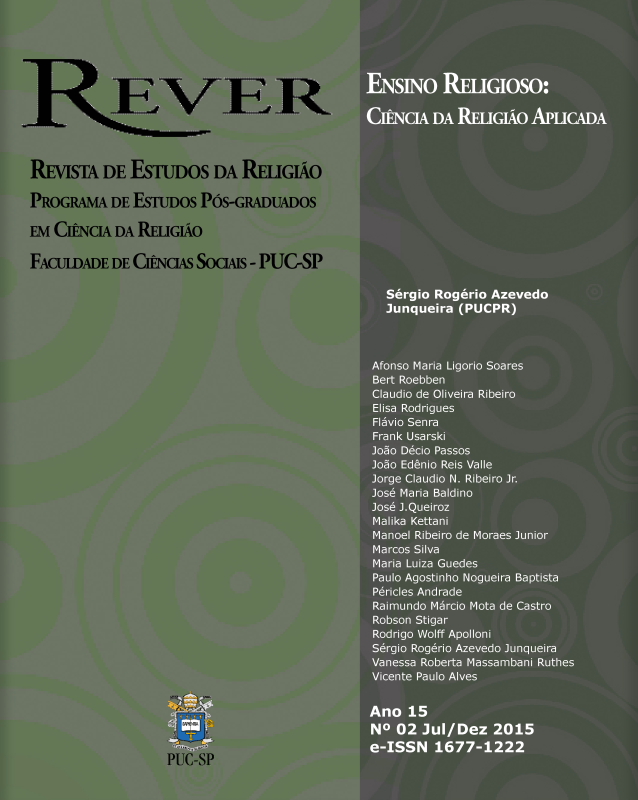A Contribuição das noções de entre-lugar e de fronteira para a análise da relação entre religião e democracia
Palavras-chave:
pluralismo religioso, democracia, emancipação, fronteiras, entre-lugar.Resumo
A pesquisa indica bases conceituais para análise dos espaços fronteiriços entre a presença pública das experiências inter-religiosas no Brasil e o aprofundamento da democracia. Entre os resultados da pesquisa, apresentamos bases teóricas que mostram a necessidade de uma atenção especial nas análises sociais à articulação entre a capacidade de diálogo dos grupos religiosos e os desafios em torno da democracia. Entres tais bases se destacam a noção de entre-lugar e de espaços fronteiriços, a lógica de alteridade e a dimensão ecumênica, e a relação entre religião e globalização contra-hegemônica. Os resultados da pesquisa tratam da primeira dimensão: as noções de entre-lugar e de fronteira como referenciais de análise das diferenças culturais e religiosas. Metodologicamente, a pesquisa utilizou o recurso da interação entre elementos da realidade sociorreligiosa e conceitos dos estudos culturais pós-coloniais advindos da produção teórica de Homi Bhabha e Boaventura de Souza Santos.Métricas
Carregando Métricas ...
Downloads
Publicado
2015-12-31
Como Citar
Ribeiro, C. de O. (2015). A Contribuição das noções de entre-lugar e de fronteira para a análise da relação entre religião e democracia. REVER: Revista De Estudos Da Religião, 15(2), 160–176. Recuperado de https://revistas.pucsp.br/index.php/rever/article/view/26193
Edição
Seção
Intercâmbio
Licença
Autores que publicam nesta revista concordam com os seguintes termos:
- Autores mantém os direitos autorais e concedem à revista o direito de primeira publicação, com o trabalho simultaneamente licenciado sob a Licença Attribution-NonCommercial 4.0 International, que permite o compartilhamento do trabalho com reconhecimento da autoria e publicação inicial nesta revista.
- Autores têm autorização para assumir contratos adicionais separadamente, para distribuição não exclusiva da versão do trabalho publicada nesta revista (ex.: publicar em repositório institucional ou como capítulo de livro), com reconhecimento de autoria e publicação inicial nesta revista.


